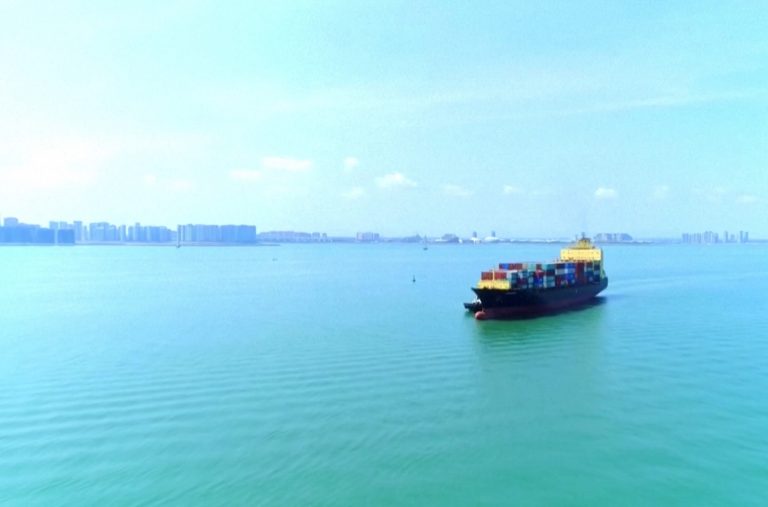Since early November, the number of vessels sending the Automatic Identification System (AIS) signal from seas around China plunged by 85 percent. On Oct. 28, more than 100,000 ships were broadcasting but, according to global shipping data provider VesselsValue, by Nov. 17, only 15,000 were broadcasting the signal.
The Automatic Identification System (AIS) is an international standard for ship-to-ship, ship-to-shore, and shore-to-ship data communication approved by the International Maritime Organization (IMO).
The steep decline comes after China’s Personal Information Protection Law (PIPL) came into effect on Nov. 1. It requires companies that process data to get approval from the Chinese government before letting personal information leave Chinese soil.
Strategic AIS base stations seized and inventoried
According to a CCTV 13 News program “Focused Interviews” on Nov. 1, since 2020, Chinese security sectors have been investigating foreign-related maritime data companies and radio enthusiasts based in Beijing, Shanghai, Shandong, and other places.
In addition, Chinese security agencies found out more than 700 self-built AIS base stations on important islands along the coastline. The security officials “seized a large number of base station equipment, intercepted more than 10,000 GB of outgoing maritime data, promptly cut off the data leakage channels, and required relevant organizations and individuals to rectify and eliminate hidden dangers.”
Success
You are now signed up for our newsletter
Success
Check your email to complete sign up
Wu Chengbin, a clerk for the Security Office of the Department of Political Affairs at the Southern Command in China, said, “Some of the land-based base stations were set up in our important military ports and sensitive areas. The scope of the base station searching signal covers our key military areas. They can collect information about the movements of our ships. Such information can be provided to foreign countries in real-time. It can be used by their military and intelligence departments to study the navigation trajectory of our ships and analyze our naval deployment and activity patterns. Those will result in the leakage of our military intelligence.”
According to the program on CCTV 13, many countries and regions used to use the AIS data of many domestic maritime data companies to collect information on the construction of China’s offshore drilling rigs, track and “grasp the movements and activity patterns of the cruising and law enforcement of China’s maritime police vessels.”
Chinese companies and individuals sanctioned
According to a Chinese national security officer involved with the program, relevant Chinese companies and individuals have been sanctioned because of the information collected.
The officer told CCTV 13 that “Several foreign maritime data companies have used AIS data analysis to provide black evidence for foreign ‘long-arm jurisdiction’ over us. In March 2020, a Defense Advanced Research Center reported that they had used some foreign maritime data companies to conduct AIS data analysis and obtain so-called ‘evidence’. Their government later imposed sanctions on the Chinese companies and individuals on such basis.”
CNN reported on Nov. 24 that VesselValue’s head trade analyst Charlotte Cook received reports earlier in the month about the Chinese national security authorities’ removal of AIS responders from stations along the country’s coast. Per CNN writer Laura He, “The only systems allowed to remain needed to be installed by ‘qualified parties.'”
According to Article 40 of China’s Personal Information Protection Law, “For the operators of critical information infrastructure and processors of the personal information of amount up to that specified by the state internet information department, they should store personal information that is collected and generated in the territory of the People’s Republic of China within China’s borders.”
Taiwan remains unaffected after Beijing restricts AIS signals
According to the Central News Agency, Taiwan’s Ministry of Transportation stated that despite the disappearance of the AIS signals for mainland Chinese ships in Chinese waters, the monitoring of ships from the island in Taiwan’s surrounding waters is not yet affected.
It also stated that Taiwan keeps monitoring ship dynamics within 20 nautical miles of its coastal waters. The Maritime Port Bureau (MOTC) of Taiwan receives ship information through its self-built AIS shore stations.














